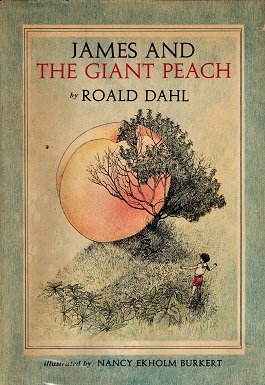Abdulrazak Gurnah
Explore the significant milestones and achievements in the life of Abdulrazak Gurnah, the Nobel Prize-winning author known for his insightful narratives on identity and displacement. From his early life in Zanzibar to his celebrated literary career, discover the timeline of events that shaped Gurnah's journey and his contributions to literature.
Birth of Abdulrazak Gurnah
Abdulrazak Gurnah was born on December 20, 1948, in the Sultanate of Zanzibar, which is now part of Tanzania. Gurnah's experiences growing up on the culturally diverse island greatly influenced his writing, which often explores themes of identity, displacement, and colonialism. His early life in Zanzibar, a place of complex cultural and political history, helped shape his literary voice and perspective.
Abdulrazak Gurnah Moves to the United Kingdom
In 1968, Abdulrazak Gurnah moved to the United Kingdom at the age of 20. The move was prompted by the Zanzibar Revolution and its subsequent political climate, which had made life difficult for Gurnah and others in the region. His relocation to the UK was a significant turning point in his life and later became a recurring theme in his novels, which often feature characters who are expatriates or who have fled their homelands.
Abdulrazak Gurnah Begins Teaching Career in the UK
Abdulrazak Gurnah embarked on his academic career as a lecturer in Zanzibar before moving to the United Kingdom, where he began teaching literature at various institutions. Gurnah's academic work and his own experience as a migrant and lecturer significantly informed his writing, as many of his novels and essays explore themes of migration, belonging, and cultural identity. Eventually, he took up a position at the University of Kent in Canterbury.
Publication of Abdulrazak Gurnah's First Novel
In 1987, Abdulrazak Gurnah published his first novel, 'Memory of Departure'. The novel tells the story of a young man leaving his troubled home in East Africa for a new life abroad. It reflects Gurnah's own experiences and his interest in themes of exile, loneliness, and the search for belonging. The novel received attention for its powerful narrative and has been followed by many others that further explore these deep and compelling themes.
Publication of the Novel Paradise
In 1994, Abdulrazak Gurnah published 'Paradise', a novel that marked his rise as a notable author. 'Paradise' was shortlisted for the Booker Prize and acclaimed for its vivid portrayal of early 20th century life in East Africa. The novel examines the cultural milieu and social structures of the time, exploring themes of colonialism and its impact on indigenous populations. Gurnah's storytelling and his rich, textured prose won him significant literary acclaim.
Publication of the Novel 'Desertion'
In 2005, Abdulrazak Gurnah released 'Desertion', a novel that weaves together personal and political themes to tell a story of love and betrayal against the backdrop of colonial East Africa. The narrative spans generations, exploring the impact of colonialism on the lives of its characters, both local and European. 'Desertion' was celebrated for its nuanced characterizations and its ability to convey complex historical realities through intimate personal stories.
Gurnah Becomes a Professor at the University of Kent
In 2006, Abdulrazak Gurnah was appointed a Professor in the Department of English at the University of Kent. As a professor, Gurnah focused on furthering the study of postcolonial literature and promoting the works and voices of African and Middle Eastern writers. His academic career paralleled his literary work, allowing him to explore and expand on his interests in cultural exchange, migration, and identity within both academic and literary contexts.
Publication of the Novel 'Afterlives'
In June 2020, Abdulrazak Gurnah published 'Afterlives', his tenth novel. The book continues Gurnah's exploration of East African history, focusing on the period during and after German colonial rule. 'Afterlives' examines the intersecting lives of several characters affected by these historical events, bringing to life personal and collective memories of colonialism. The novel was widely praised for its compassionate storytelling and its deep engagement with history.
Abdulrazak Gurnah Wins the Nobel Prize in Literature
On October 7, 2021, Abdulrazak Gurnah was awarded the Nobel Prize in Literature. The Nobel committee recognized his uncompromising and compassionate exploration of the effects of colonialism and the fate of the refugee in the gulf between cultures and continents. His deep narrative insight and dedication to the stories of those affected by migration and dislocation were highlighted as critical reasons for his selection. The award brought Gurnah's work to a global audience, reaffirming his place as a significant voice in world literature.
Nobel Prize Award Ceremony
On December 10, 2021, Abdulrazak Gurnah officially received the Nobel Prize in Literature during the award ceremony held in Stockholm, Sweden. Due to the COVID-19 pandemic, the ceremony was a hybrid event with limited in-person attendance. Gurnah's Nobel lecture, delivered at the ceremony, reflected on the themes of exile, belonging, and the power of storytelling. His acceptance further solidified his impact on the literary world, as he used the platform to discuss the important issues he addresses in his work.
Frequently asked questions about Abdulrazak Gurnah
Discover commonly asked questions regarding Abdulrazak Gurnah. If there are any questions we may have overlooked, please let us know.
When was Abdulrazak Gurnah born?
What significant event happened in Abdulrazak Gurnah's life in 1968?
When did Abdulrazak Gurnah publish his first novel?
When did Abdulrazak Gurnah win the Nobel Prize in Literature?
Related timelines
More timelines connected to Abdulrazak Gurnah







